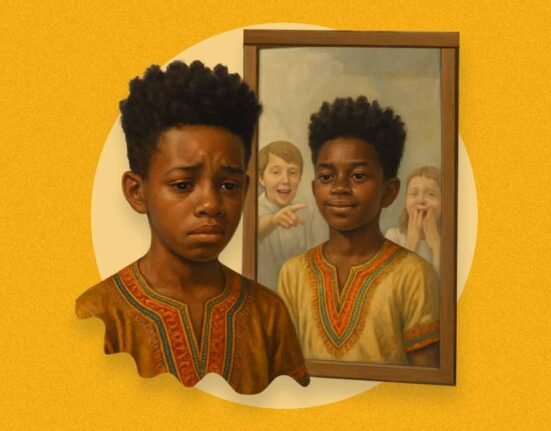Divorce, the dissolution of marriage, is an event characterized by disappointment and the shattering of dreams and expectations of a couple. A significant change in their lives, a divorce involves emotional, legal, financial and parental aspects that require a shift in responsibilities. Doubtless, it can take years for partners to regain stability in their lives. However, it is not just the partners who bear the brunt of this traumatic event. Children whose parents have divorced can undergo an especially sad, stressful and a confusing time. At any age, they may feel angry, shocked and insecure at the prospect of their parents splitting up.
Parental divorce can be a highly stressful and emotional experience for children who may feel that their entire world has turned upside down. Such a transitional time then, does not occur without a certain degree of grief and hardship. Parental divorce can wreak havoc on children’s financial and emotional stability while affecting their behaviour as well as physical health. Some of these consequences can be long-lasting and impact children’s future relationships. The many ways in which a divorce can negatively affect a child have been listed down and explained below. While these are some of the possible negative effects of divorce on children, they are by no means absolutes.
Psychological Effects
• Feeling of guilt.
Young children often show egocentric thinking which can be understood as the tendency to see everything that happens as it relates to the child. At such a tender age, they find it difficult to understand varying points of view, and consider themselves as the cause of occurrences around them. Thus, children will look for reasons and wonder if they have done something wrong to cause a divorce, thus instilling a feeling of guilt. This experience of guilt is very common in children and can lead to other issues if not addressed properly. For example, it can lead to stress which can manifest in the body in terms of health problems while also causing depression. Helping the child to understand his role in divorce while providing counselling can significantly reduce guilt feelings.
• Mood swings and irritability.
Parental conflict or divorce can leave a child feeling overwhelmed. As a result, they may feel disillusioned and face difficulty navigating their way around the event. Because they do not understand how to respond to the situation, they end up throwing an anger tantrum or become irritable. Their anger may be directed toward a range of targets including themselves, parents, family, friends, etc. In facing a mood swing, the child may become irritable even when spending time with familiar people. They may shut themselves away, withdraw themselves or stop talking to others while preferring to spend time alone. While the anger many wear off after a few weeks, a lingering mood swing can indicate a deeper effect of divorce which may require a professional intervention.
• Anxiety
Young children are heavily dependent on their parents for support and everyday activities. Hence, they are more prone to becoming anxious after a divorce. The aftermath of even a healthy divorce can leave a child feeling tense, nervous and anxious due to the major life transition. Moving homes, changing school environment, change in routine and rotations in caretakers are some of the contributors to a child’s anxiety. If not paid attention to and treated properly, normal anxiety can turn into an anxiety disorder. At times, anxiety can be difficult to identify in young children, but typical characteristics include sleep difficulties, increase in fearfulness, difficulty in focus and attention, social withdrawal, changes in appetite and bed wetting among many others. Exploring underlying feelings related to the divorce will enhance the child’s adaptation and coping.
• Intense sadness.
Acute sadness can rush through the mind and heart of the child as he realises the reality of parental separation. The idea of no longer being able to see one of his parent daily can deeply hurt a child. It can shatter the child’s sense of stability and security while questioning the very idea of love. As the child navigates his way around these complex questions, he/she may find himself/herself in the midst of a very serious disorder that is depression, a long term manifestation of sadness among other symptoms. To help the child cope with sadness in a healthy manner, he/she should be encouraged to voice out his/her feelings and thoughts in a safe space.
Behavioural Effects
• Academic performance.
Parental separation and divorce has a good chance of being related to decreased school performance and achievements. Children may exhibit disruptive behaviour at school in terms of hitting others, saying bad words and disobedience. Their grades also reveal a drop which can hamper the child’s ability to learn. Such a stunted progress in education can negatively impact the child’s career prospects. By digging deeper and trying to understand the reasons for a child’s misbehaviour, can reveal the underlying issues he/she may be struggling with. Children are usually not equipped with the healthy coping skills, but with the guidance of a vigilant adult, they can be taught to navigate around difficult life circumstances.
• Ability to handle conflict.
The differences between partners that remain intact and those that end in divorce lie primarily in the couple’s ability to handle marital conflict and move towards agreement. A child’s behaviour is often shaped by his/her caretakers as he/she imbibes certain behaviour traits through keen observation. Doubtless then, parental modelling in divorce can play a role in diminishing children’s capacity to resolve a conflict as they might develop a tendency to resolve conflict using means of aggression and physical violence.
• Substance abuse.
Divorce as a stressful and traumatic early life experience is a big factor into teenage substance abuse as children are left in a place of confusion, embarrassment and often anger. With parents having their own burden to cope with, children often begin to turn to other avenues for coping. Drugs and alcohol become channels through which adolescents can vent out their frustration and anxiety. The probability of a child succumbing to the temptation of abusing alcohol or drugs is high among adolescents. Helping the child build social support along with a solid foundation of healthy coping skills can aid in building resilience and reduce the chances of substance abuse.
• Social skills and criminal mind set
The event of divorce can put a child at a greater risk of developing violent and antisocial behaviour. This is often accompanied by lack of anger management which has the potential to negatively impact all relationships. Children may show no hesitation abusing or assaulting someone. In the long run, these tendencies can lead to a criminal mind set, especially during the teenage years. The loss of love and guidance at the intimate level of family can weaken the sense of connection a child has with his/her surroundings. This makes him/her more prone to exploit society’s members to satisfy own needs resulting in social chaos and violent crime.
.jpg)
• Effect on Future Relationships
Children raised in divorced families go through a confusing and stressful period which can alter their own opinions about relationships. Over time, they may develop less positive attitudes about marriage and more positive attitudes about divorce. Such attitudes can alter the level of commitment they bring to romantic relationships which in turn is related to lower relationship quality. They lead not just to decreased commitment, but also affect sexual behaviour which may compromise emotional and relational stability. Dating and romance becomes more difficult for children as they reach adulthood because the effects of divorce carry into adulthood as well. Parental divorce horrifies young adults’ relationship experiences as it leads to low trust among children. The lack of trust hinders the deepening of their relationship as they secretly fear being rejected. The more common divorce and rejection is among adults, the more the attitudes and expectations of rejection are found among children. Although more money and gifts are invested in casual dating relationships, children of divorced parents show an ambivalence about becoming involved in a marriage. Adolescents, specifically, may feel that marriage is unpredictable and unstable. They are also less likely to think positively of themselves as parents.
When children grow up seeing a marriage fail, they develop their own doubts about the idea of love. Such children often begin any romantic relationship with a negative mind set as they find it difficult to trust their partner while finding it difficult to resolve conflicts. Despite hoping to have stable relationships themselves when they grow up, they are more likely to divorce when in their own relationships.
Thousands of children experience the stress of divorce each year, and most of them share the initial reactions of shock, sadness, frustration, worry and anger. It is important that parents help their kids through this stressful period. Few ways in which this help can be imparted to children are as follows:
1. Visible conflict, arguments and legal talk should be kept away from children.
2. The child’s routine should be disturbed in the least way possible.
3. Each parent should make an effort to stay involved in the child’s life.
4. Negative talk including blaming should remain confined to therapy sessions or conversations with friends away from home.
5. Encourage honest talk with the child and validate his/her feelings about the situation instead of giving false hopes in form of statements such as “everything will be alright.”
.jpg)
6. Support should be offered to the child, ask questions like “How can I help you to make this transition easier?” Suggest activities that will help the child cope better if he/she is not able to come up with ideas.
7. If the parents are feeling overwhelmed themselves, they can seek the help of a mental health professional. Children as well can be encouraged to attend therapy sessions where they can speak openly about their feelings and fears.
8. Children should be reassured about the parents’ love. They should be treated as an equal family member who deserves to know about the situation.
9. Children should be reassured that the divorce is not their fault. They may be feeling guilty silently, but they need to know that the adults have made the decision based solely on their relationship which does not involve them.
10. Parents should avoid belittling each other in front of the child as children can easily sense conflict and it can deter an open dialogue.
11. Children should be given an advance notice before a parent actually moves out so that they can mentally and emotionally prepare themselves for the change to come.
It is true that divorce is rarely seen as a positive thing, but bad things aside, it can actually provide benefits that an unhappy marriage never could, which is especially true regarding children. If the divorce is set up in a way that both the parents work together, children come to learn the importance of setting boundaries. If parents can model mature behaviour while going through a divorce, it can reap benefits. They can learn how to resolve conflicts with others in their own lives. They also understand that it is okay to reject a certain situation that they do not feel comfortable in.
There is no doubt that a divorce is hard on everyone, but if children continue to be loved by both parents, a stable and calm environment can be created from which children can emerge in good shape. With time and support, scars of a divorce can fade.












Leave feedback about this